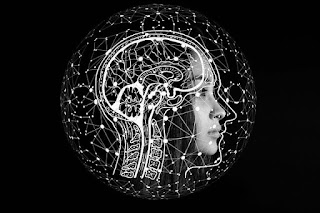Computational science, also known as scientific computing, is an interdisciplinary field that combines computer science, mathematics, and domain-specific knowledge in order to solve complex problems in science and engineering. It is a rapidly growing field that has revolutionized the way we conduct research and has led to many important advances in a wide range of areas, including physics, chemistry, biology, and finance.
One of the key advantages of computational science is its ability to solve problems that are too complex or time-consuming to be solved by analytical methods alone. For example, in physics, computational simulations can be used to model the behavior of subatomic particles or the dynamics of the entire universe. In chemistry, computational methods can be used to predict the properties of new materials or the behavior of complex chemical reactions. In biology, computational models can be used to study the structure and function of proteins and the behavior of cells and entire organisms.
Another major advantage of computational science is its ability to handle large and complex data sets. With the increasing availability of powerful computers and sophisticated software tools, it is now possible to collect, store, and analyze vast amounts of data from a wide range of sources, including experiments, simulations, and satellite observations. This has led to the development of new methods for data mining and machine learning, which are enabling scientists to make new discoveries and to better understand the underlying processes that govern the natural world.
One of the most important applications of computational science is in the field of high-performance computing (HPC). HPC is the use of supercomputers and other advanced computer systems to solve complex problems that require a large amount of computing power. HPC is used in a wide range of areas, including weather forecasting, climate modeling, drug discovery, and aerospace engineering.
One of the most exciting areas of computational science is in the field of artificial intelligence (AI) and machine learning (ML). AI and ML are enabling computers to perform tasks that were once thought to be the exclusive domain of humans, such as recognizing speech and images, playing chess and Go, and even writing poetry and music. These technologies are being used in a wide range of applications, including self-driving cars, intelligent robots, and personalized medicine.
Despite the many advantages of computational science, there are also some challenges that need to be addressed. One of the main challenges is the need for highly skilled and trained professionals who can develop and use the advanced computational tools and methods that are needed to solve complex problems. Another challenge is the need for large amounts of computational resources, including powerful computers and large data storage systems. Finally, there is a need for robust and reliable software tools and libraries that can be used by researchers across different disciplines.
In conclusion, computational science is a rapidly growing field that is transforming the way we conduct research and making new discoveries possible in a wide range of areas. With the help of powerful computers, sophisticated software tools, and highly trained professionals, computational scientists are tackling some of the most complex and challenging problems in science and engineering. The future of computational science looks bright, as new technologies and methods continue to be developed and applied to a wide range of areas. As the field continue to progress and evolve, it will play an increasingly important role in advancing our understanding of the natural world and solving the critical problems facing society.


Post A Comment:
0 comments so far,add yours